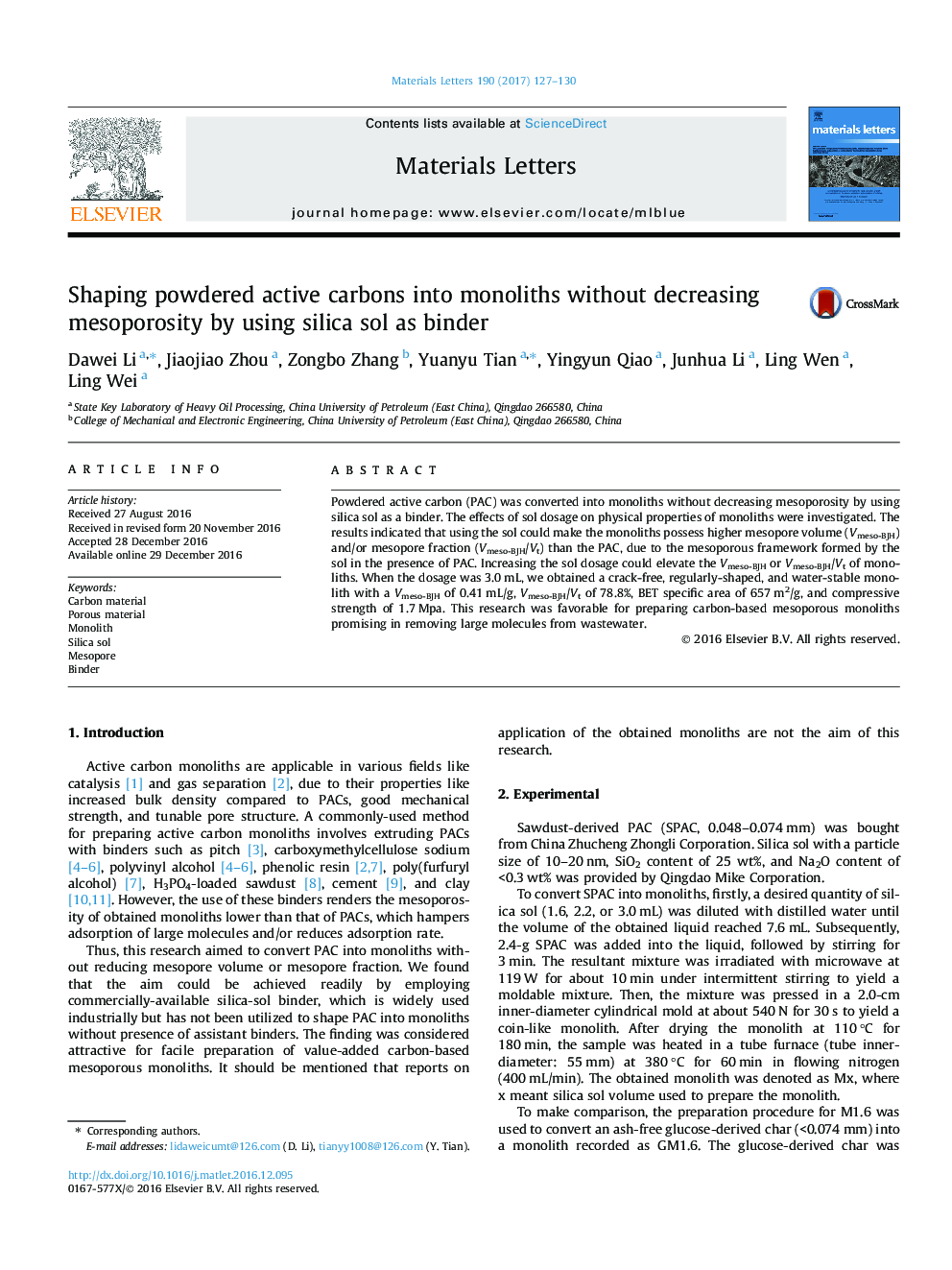| Article ID | Journal | Published Year | Pages | File Type |
|---|---|---|---|---|
| 5464188 | Materials Letters | 2017 | 4 Pages |
Abstract
Powdered active carbon (PAC) was converted into monoliths without decreasing mesoporosity by using silica sol as a binder. The effects of sol dosage on physical properties of monoliths were investigated. The results indicated that using the sol could make the monoliths possess higher mesopore volume (Vmeso-BJH) and/or mesopore fraction (Vmeso-BJH/Vt) than the PAC, due to the mesoporous framework formed by the sol in the presence of PAC. Increasing the sol dosage could elevate the Vmeso-BJH or Vmeso-BJH/Vt of monoliths. When the dosage was 3.0Â mL, we obtained a crack-free, regularly-shaped, and water-stable monolith with a Vmeso-BJH of 0.41Â mL/g, Vmeso-BJH/Vt of 78.8%, BET specific area of 657Â m2/g, and compressive strength of 1.7Â Mpa. This research was favorable for preparing carbon-based mesoporous monoliths promising in removing large molecules from wastewater.
Related Topics
Physical Sciences and Engineering
Materials Science
Nanotechnology
Authors
Dawei Li, Jiaojiao Zhou, Zongbo Zhang, Yuanyu Tian, Yingyun Qiao, Junhua Li, Ling Wen, Ling Wei,
